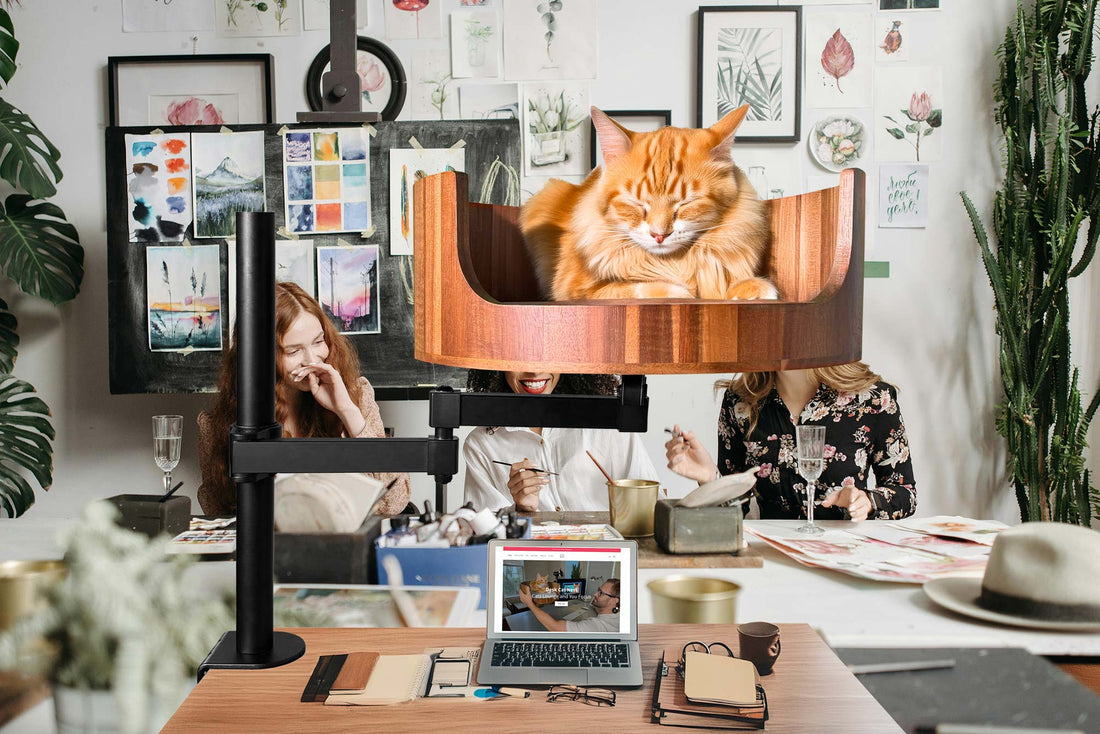
Why Do Cats Pee on Bed: Understanding Feline Behavior
Share
Have you ever woken up to find your beloved feline friend has peed on your bed? This frustrating and puzzling behavior is not uncommon among cat owners, and can leave them feeling overwhelmed and confused. In this article, we will delve into the reasons why cats may engage in this behavior, helping you to better understand your furry companion's actions.
From stress and anxiety to marking their territory, there are a variety of factors that may contribute to a cat peeing on your bed. By gaining insight into feline behavior and understanding the instincts that drive your cat's actions, you can work towards finding solutions to prevent this behavior from reoccurring. We will explore how to identify the underlying reasons for your cat's behavior, as well as practical tips and strategies for addressing the issue in a way that is both effective and compassionate. With a deeper understanding of why cats pee on beds, you can strengthen the bond with your pet and create a harmonious environment for you both to enjoy.
1. Cats may pee on beds due to stress, medical issues, or territorial marking.
2. Understanding a cat's behavior and providing a calm environment can help prevent inappropriate urination.
3. Utilizing pheromone diffusers or calming products may help reduce stress-related urination.
4. Regular veterinary check-ups are crucial to rule out any underlying medical conditions causing the behavior.
5. Implementing litter box management techniques and positive reinforcement training can encourage proper elimination habits.
Causes of Cats Peeing on Bed
Cats might pee on the bed due to various reasons, such as marking territory, stress or anxiety, medical issues like urinary tract infections, or simply a behavioral problem. Understanding the root cause of this behavior is crucial in addressing the issue effectively and preventing it from recurring.
Marking Territory
Cats are territorial animals, and peeing on the bed could be a way for them to mark their territory and establish ownership. This behavior is more common in unneutered male cats but can also occur in spayed females. Making sure your cat is spayed or neutered can help reduce this behavior.
Stress and Anxiety
Changes in the environment, such as moving to a new house, introducing a new pet, or changes in routine, can cause stress and anxiety in cats, leading to inappropriate urination. Providing a safe and comfortable environment for your cat, along with plenty of mental and physical stimulation, can help alleviate stress-related urination issues.
Medical Issues
Urinary tract infections, bladder stones, or other medical conditions can cause discomfort or pain in cats, leading to urination outside the litter box. It's important to consult a veterinarian to rule out any underlying health issues and provide appropriate treatment if necessary.
Behavioral Problems
Some cats may develop inappropriate urination habits due to behavioral issues like litter box aversion, territorial conflicts with other pets, or even out of boredom. Ensuring a clean and accessible litter box, providing multiple litter boxes in a multi-cat household, and enriching your cat's environment with interactive toys and playtime can help address behavioral problems associated with urination on the bed.
Frequently Asked Questions
Why do cats pee on the bed?
Cats may pee on the bed for a variety of reasons, including marking territory, stress or anxiety, medical issues, or simply because they don't like their litter box. Providing a comfortable and secure space, such as a Desk Cat Nest, may help alleviate some of these issues.
Will a Desk Cat Nest prevent my cat from peeing on the bed?
While a Desk Cat Nest can create a cozy spot for your cat to rest and feel safe, it may not completely solve the issue of bed peeing. It's important to address any underlying issues that may be causing your cat to pee on the bed, such as medical concerns or behavioral problems.
How can a Desk Cat Nest help with preventing bed peeing?
A Desk Cat Nest provides a designated and comfortable space for your cat to rest and relax, which may reduce stress and anxiety that could be contributing to bed peeing. Additionally, the nest can help redirect your cat's attention away from the bed as a potential bathroom spot.
Is a Desk Cat Nest easy to clean?
Yes, a Desk Cat Nest is designed with removable and washable covers for easy cleaning. Simply unzip the cover and follow the care instructions provided to keep your cat's nest fresh and clean.
Can multiple cats use a Desk Cat Nest?
Yes, a Desk Cat Nest can accommodate multiple cats, depending on the size of the nest. Cats often enjoy cozying up together in a shared space, so having a nest that can fit more than one cat can help promote harmony and reduce territorial behaviors that may lead to bed peeing.
In conclusion, the Desk Cat Bed is a valuable choice for addressing the issue of why cats pee on the bed. With its comfortable design and cozy space, this cat bed provides a secure and appealing spot for your feline friend to rest and relax. By giving your cat a designated place to sleep, they are less likely to feel the need to mark their territory by peeing on your bed. Additionally, the easy-to-clean materials make it a convenient option for pet owners. Invest in a Desk Cat Bed today to create a comfortable and stress-free environment for your beloved pet.



















































